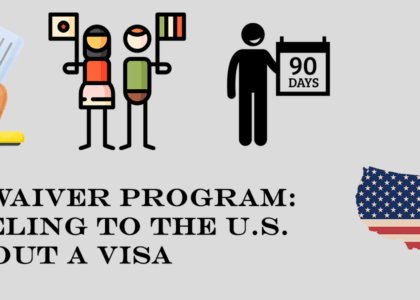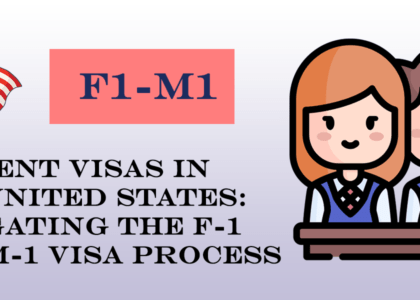So you’ve decided you want to stay in the United States permanently. You’ve fallen in love with the country, culture, or someone special and just can’t imagine leaving. The good news is that there are paths to permanent residency and eventual citizenship, even if you weren’t born in the U.S. The most well-known option is applying for a green card. Obtaining a green card allows you to live and work permanently in the U.S., travel in and out of the country freely, and eventually apply to become a naturalized citizen. The process isn’t always easy, but for many, the rewards of building a life in America make the effort worthwhile. If you meet certain eligibility criteria, whether through family, a job, humanitarian reasons, or the diversity lottery, you’ve got a shot at that coveted green card. So keep reading to learn the steps to make the American dream your reality.
Green Cards: An Overview of Permanent Residency in the U.S.
A green card, known officially as a permanent resident card, allows foreign nationals to live and work in the U.S. permanently legally. To get a green card, you’ll need to go through a process called permanent residency. This typically starts with a family member, employer, or U.S. sponsor petitioning on your behalf.
Once your petition is approved, you can apply to adjust your status to become a lawful permanent resident. This is done by filing Form I-485, the Application to Register Permanent Residence or Adjust Status. You’ll need to provide evidence to prove your eligibility, which could include documents showing your family relationship, a job offer letter, or sponsorship approval.
The next step is your green card interview. An immigration officer will review your application and documents to verify the information. They’ll also evaluate factors like your character, health, finances, and living situation to make sure you’ll be self-sufficient in the U.S. If approved, you’ll receive your green card in the mail within a few weeks.
With permanent residency, you can live freely in the U.S., travel in and out of the country, work for any employer, and access benefits like healthcare and education. You must renew your green card every 10 years to maintain your status. After 5 years, you’ll be eligible to apply for U.S. citizenship through naturalization if you meet the requirements.
A green card provides stability and opportunity. While the process can be complicated, obtaining permanent residency is a life-changing achievement and a dream come true for many. With hard work and perseverance, you too can make the U.S. your permanent home.
Qualifying for a Green Card: Eligibility Requirements and Application Process
To qualify for a green card and permanent residency in the U.S., you’ll need to meet certain eligibility criteria. The specifics depend on which category you’re applying to, but here are the basics:
Employment-Based Green Cards
If you have a job offer from a U.S. employer, you may be eligible for an employment-based green card. You’ll need to meet requirements like having a bachelor’s degree or higher in your field or having exceptional abilities in science, the arts, or business. The employer will also need to obtain labor certification to prove no qualified U.S. workers are available for the job.
There are different types of EB categories where you are eligible for a Green Card. Please look at your eligibility:
- EB1 Eligibility and Requirements
- EB2 Eligibility and Requirements
- EB3 Eligibility and Requirements
- EB4 Eligibility and Requirements
- EB5 Eligibility and Requirements
Family-Based Green Cards
If you have a family member who is a U.S. citizen or green card holder, they may be able to petition for you to get a green card. The category you qualify under depends on your relationship; spouses and children are top priorities. Siblings and adult children of U.S. citizens face the longest wait times, possibly many years.
Humanitarian-Based Green Cards
If you’ve faced persecution or torture in your home country, you could be eligible for asylum or refugee status. Victims of domestic violence (VAWA petitions) or U visas for victims of crimes may also lead to a green card.
To apply, you’ll submit USCIS forms, documents proving your eligibility, medical exams, and an interview. The entire process typically takes at least several months or a few years. But if approved, you’ll receive your green card—and with it, the opportunity to live and work permanently in the United States.
Benefits of Becoming a Resident: Why a Green Card Offers Security and Opportunity
As a green card holder, you’ll have more stability and options in the U.S. than other non-citizens. You’ll no longer need visas to travel in and out of the country, and you can live and work anywhere in the U.S. without restrictions.
- You’ll have permanent resident status. It grants you official immigration status to permanently reside in the U.S. You’ll no longer need to renew temporary visas. Once you have a green card, it’s much easier to apply for U.S. citizenship if you wish.
- You can work, live, and study anywhere. There are no restrictions on where in the U.S. you choose to settle down. You’re free to move between states, change jobs, go back to school, or open a business.
- You’ll have more stability and security. As a permanent resident, you have the assurance that you won’t be asked to leave the country unless you commit a serious crime. You’ll also have access to government benefits like healthcare, education, retirement programs, and more.
- Traveling in and out of the U.S. is easier. You can travel abroad and return to the U.S. freely without needing advance permission or visas for re-entry. However, it’s still a good idea to keep your green card with you when traveling in case immigration officials request it.
Becoming a lawful permanent resident and securing a green card is a life-changing opportunity. While the application process can be complicated, the benefits of gaining permanent residence in the U.S. are well worth the effort for many. A green card can open you up to a world of possibilities and peace of mind.
Conclusion
So there you have it: the basics of green cards and becoming a lawful permanent resident. The process can seem complicated, but by understanding the options, eligibility criteria, and application steps, you’ll be well on your way to calling the U.S. your permanent home. While it does require time, paperwork, and patience, permanent residence is worth the effort for the freedom and security it provides. With your residency, you’ll have access to opportunities not available to those on temporary visas. Most importantly, though, you’ll have the peace of mind that comes from knowing you have the right to stay in the country you now call home. So take a deep breath and dive in—a green card could be your ticket to the life you’ve been dreaming of. The next step is yours.






